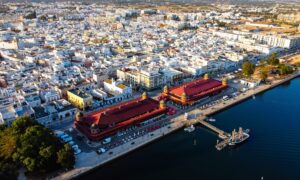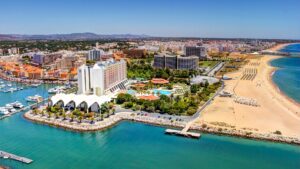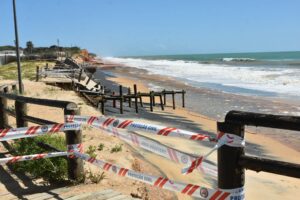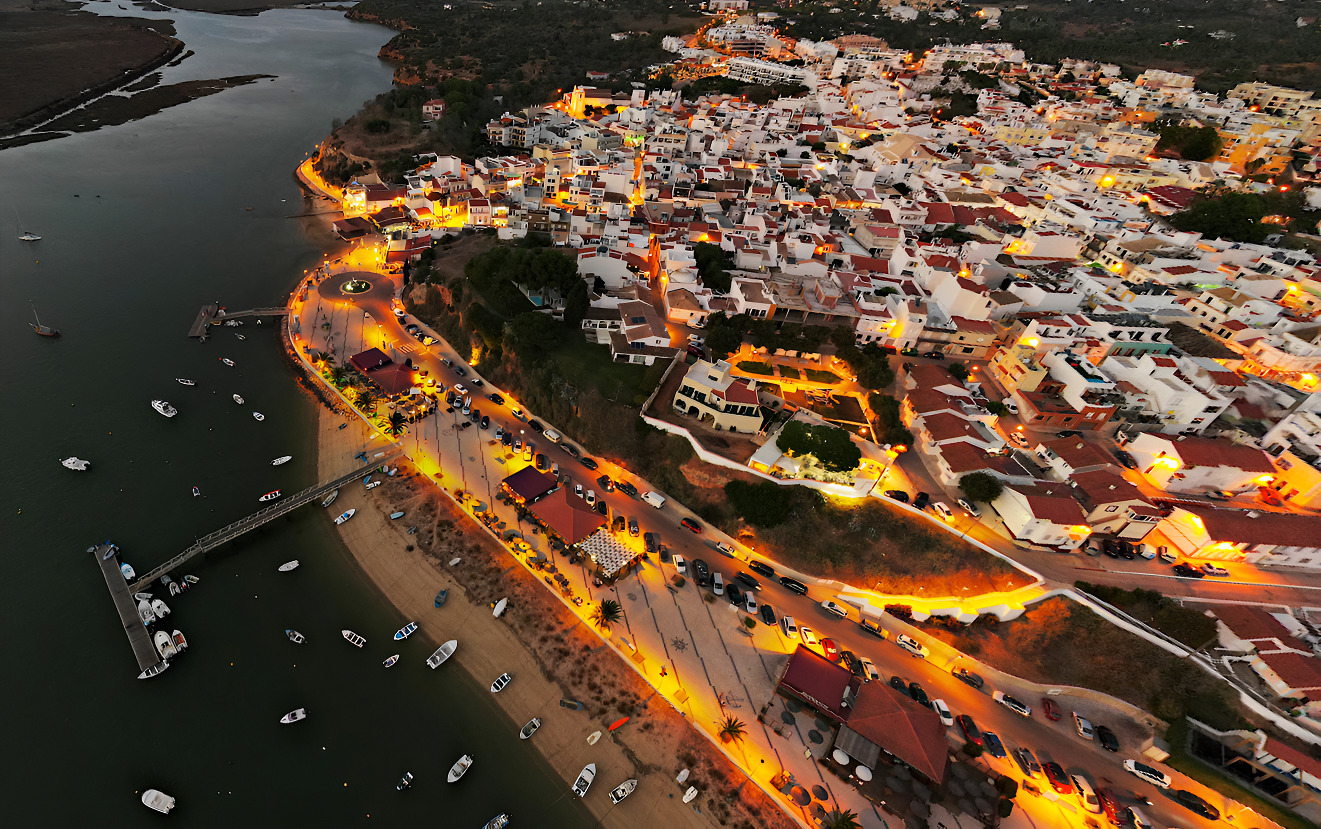
Along the coastline are modern hotel complexes, while in Alvor are authentic Portuguese restaurants and lively bars. The city still retains its traditional Portuguese charm and character and has not succumbed to mass tourism, as with many other beach towns.
History
Alvor has an extensive history. It was originally established by the Romans and grew to be an important trading town during the Moorish era. In 1189 the town was conquered by King Sancho I, who fortified the castle and improved the town’s defenses. In 1495, King João II (who is regarded as one of Portugal’s greatest kings) died in Alvor Castle, possibly assassinated by poisoning. With all of this varied history, you would expect numerous historic monuments, but they were all destroyed by the 1755 earthquake. The only remnants from prior to the earthquake are the foundations of the castle, which has been converted into a children’s playground.
Alvor is a former fishing village with its ancient cobbled streets that’s now part of the city of Portimão. It is located by the protected Alvor River estuary, with restaurants and bars. Here you can smell fish being grilled and see a number of fishing boats and yachts. All this brings a significant number of tourists in the summer, especially at night after a day at the beach. These beaches are less crowded than those closer to the center of Portimão, but there are a number of hotels along the coast.
Being slightly smaller, Alvor does not attract focused party groups and is much calmer in the summer than the larger resort towns. This calmer atmosphere makes the town popular for families and older tourists.
The location of Alvor benefits from being close to the buzz of the central Algarve but is sufficiently distant not to feel overrun with hordes of package tourists.
What to see and do in Alvor
Alvor is a destination for those looking for a quieter but not necessarily remote Algarve. The town does not have any historical monuments, its main draw is its Portuguese character and pretty setting.
– Igreja da Misericórdia
The Church of Mercy is the main monument. It suffered some damage in the earthquake, but its Manueline (Portuguese gothic) portal survived. The interior has baroque altarpieces and a rococo tile panel illustrating the Last Supper.
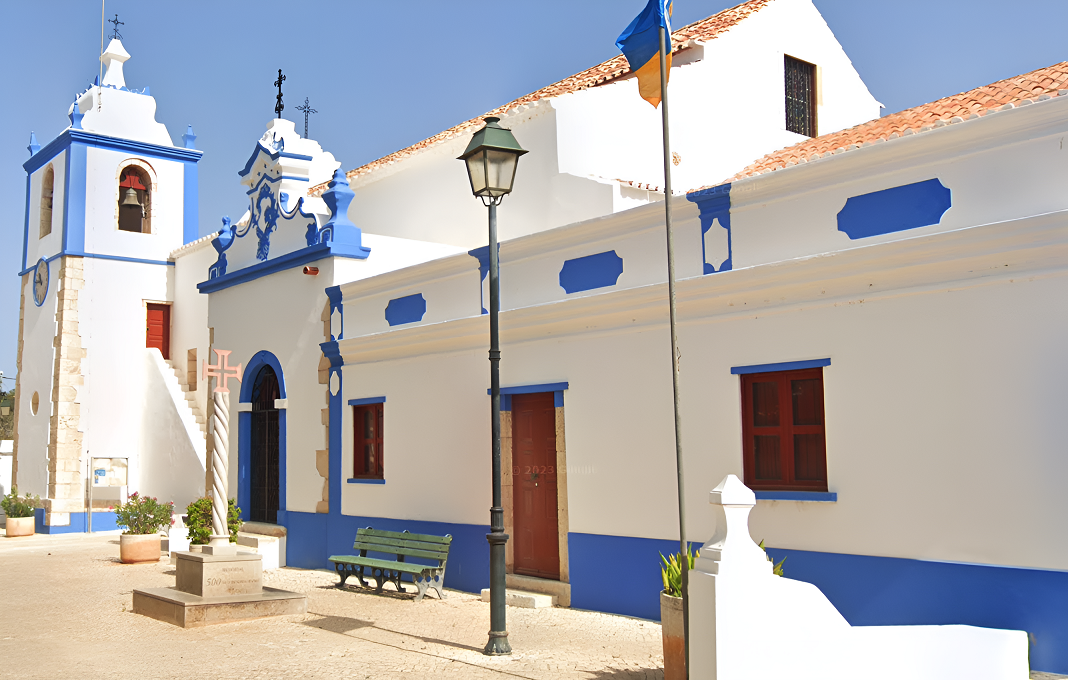
– Passadiços de Alvor
The top tourist attraction besides the beaches, however, is the Passadiços de Alvor – The series of raised walkways that pass through the protected sand dunes of the Ria de Alvor Nature Reserve and along the Praia de Alvor beachfront. This is a footpath that is elevated over dunes and marshes, offering scenic views of the Alvor River estuary and a variety of fauna and flora. It’s 3 kilometers (close to 2 miles) long and is of particular interest to birdwatchers.
Note: This is a very rough footpath and follows the top of a cliff, so good shoes are needed.
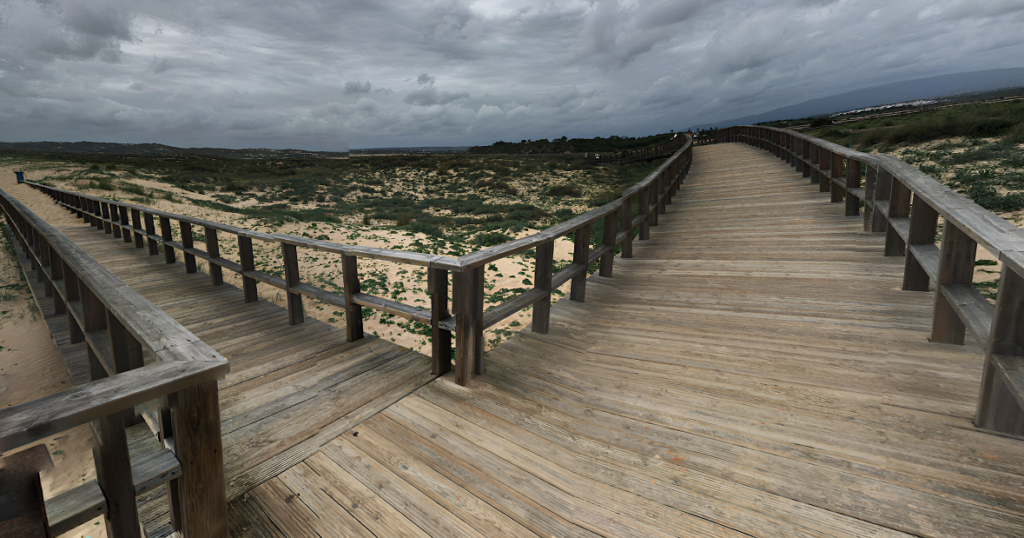
– Praia de Alvor
The magnificent sandy beach extends for 3.5 km along the coastline of Alvor. This vast beach provides soft golden sands, clean sea waters, and ample space for all of the summertime tourists.
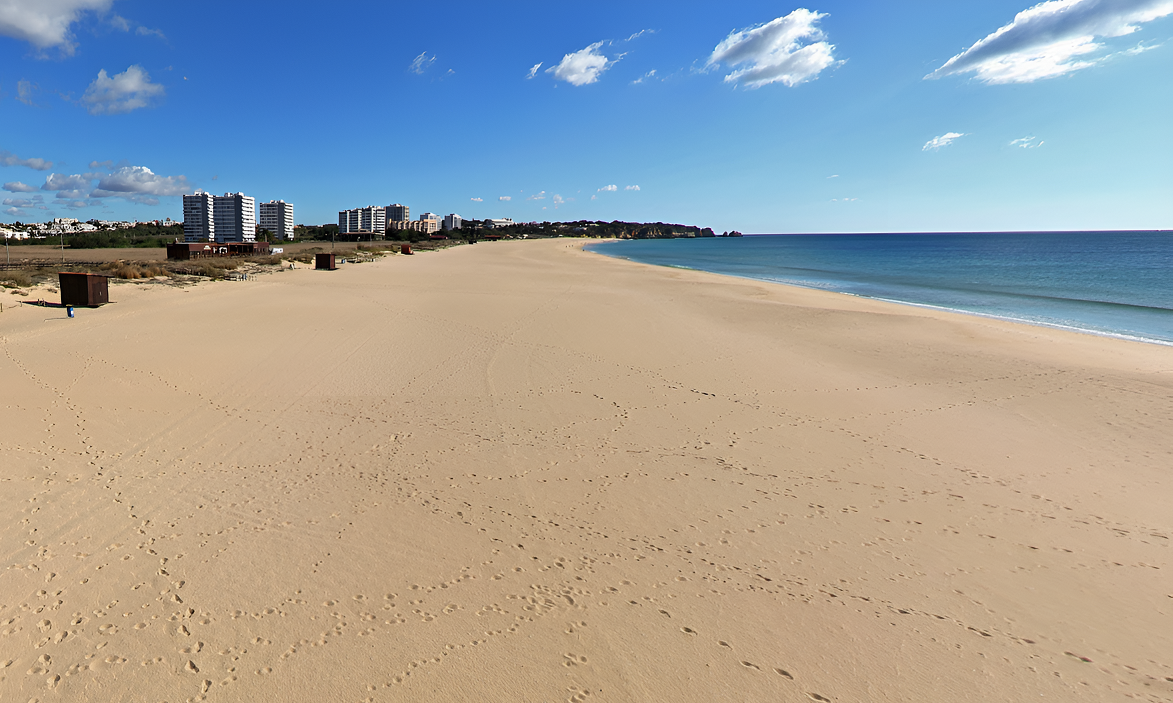
Why choose Alvor?
Alvor is a delightful town with a distinctively Portuguese ambiance; there are traditional whitewashed houses, narrow cobbled streets, and fishing boats moored along the banks of the river. It may be a relatively small town, but it contains a surprisingly large selection of restaurants, shops, and late-night bars, all of which are found within the pretty historic center.
During the summer, the calm atmosphere of Alvor makes it a favorite with families, while outside of the peak season, it is popular with older visitors.
A holiday to Alvor is often focused around the beach, but there is a lot to see and do within the surrounding region. There are exciting waterparks, boat tours, golf courses, nature trails, and dolphin-watching trips, along with day trips to the fortified town of Silves, the historic city of Portimão, or the lively resort of Praia da Rocha.
The town has a calm and unhurried pace, where days are spent relaxing on the beach, eating delicious Portuguese food, and socializing in late-night bars and cafes.
Alvor has some of the best and most beautiful beaches in Algarve. Most have golden rock formations and cliffs and are quieter than those in neighboring towns.
Beaches in Alvor
Alvor has some of the best and most beautiful beaches in Algarve. Most have golden rock formations and cliffs and are quieter than those in neighboring towns. It has an amazing sandy coastline that extends for over 3.5km from the mouth of the Ria de Alvor in the west to the João de Arens headland in the east. This is a beautiful sandy beach with clean seawater and large waves depending on the weather conditions. During the summer, the beach is supervised by lifeguards and is safe for children. On the beach, sunshades and parasols can be hired.
To the rear of the beach are numerous beach bars and restaurants. The ocean temperature at Alvor is always chilly, reaching a maximum of just 21 °C in the hot summer months.
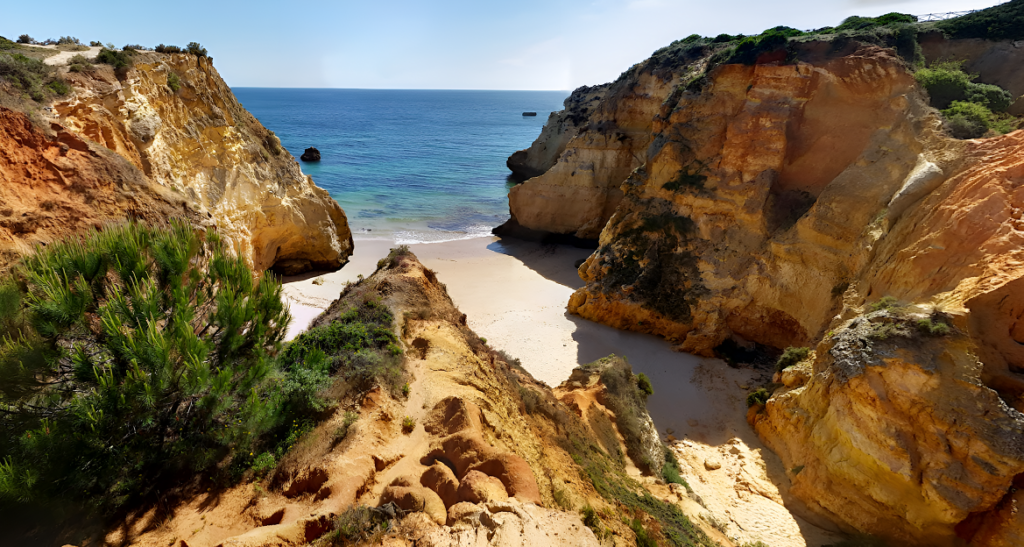
From Alvor, it is very easy to visit Portimão and Praia da Rocha, as these two destinations are connected by the inexpensive local bus network. Praia da Rocha is a beautiful beach in Portimão. A perfect place to head to for a big party night out, as the town is crammed full of themed bars and late-night venues.
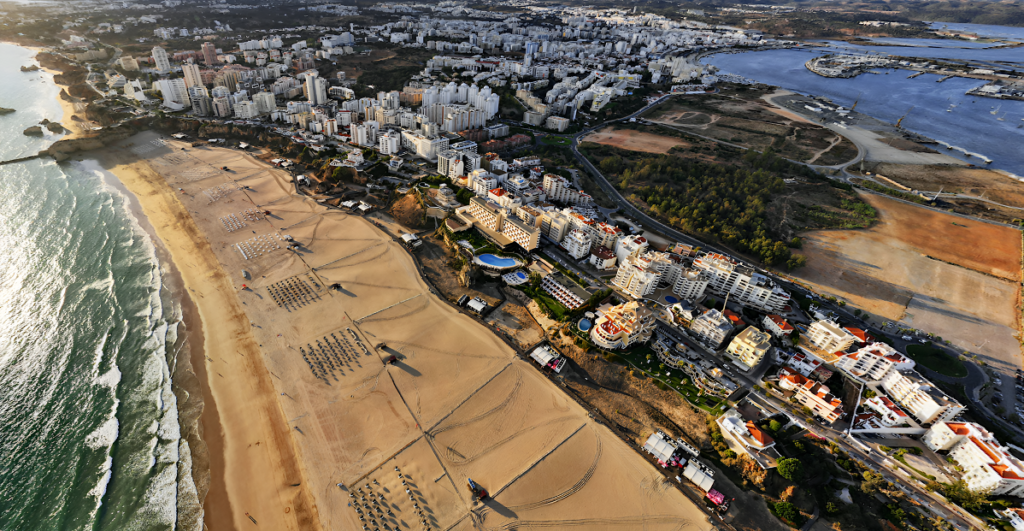
Portimão is a large residential city that offers a scenic harbor, good shopping, and a chance to experience typical Portuguese daily life. The town is a major transport hub and from here it is possible to catch further buses to the historic towns of Silves and Lagos, for example.
When to visit Alvor
Alvor has hot summers, pleasant spring and autumn seasons, and mild but unpredictable winters. July and August are the height of the tourist season and is when the beaches are packed, and hotels are sold out. But outside of the peak season, Alvor becomes a calm and relaxed town, and the best season to visit is during the late spring or early autumn. The weather in southern Portugal is suitable for spending time on the beach from May through to the end of October.
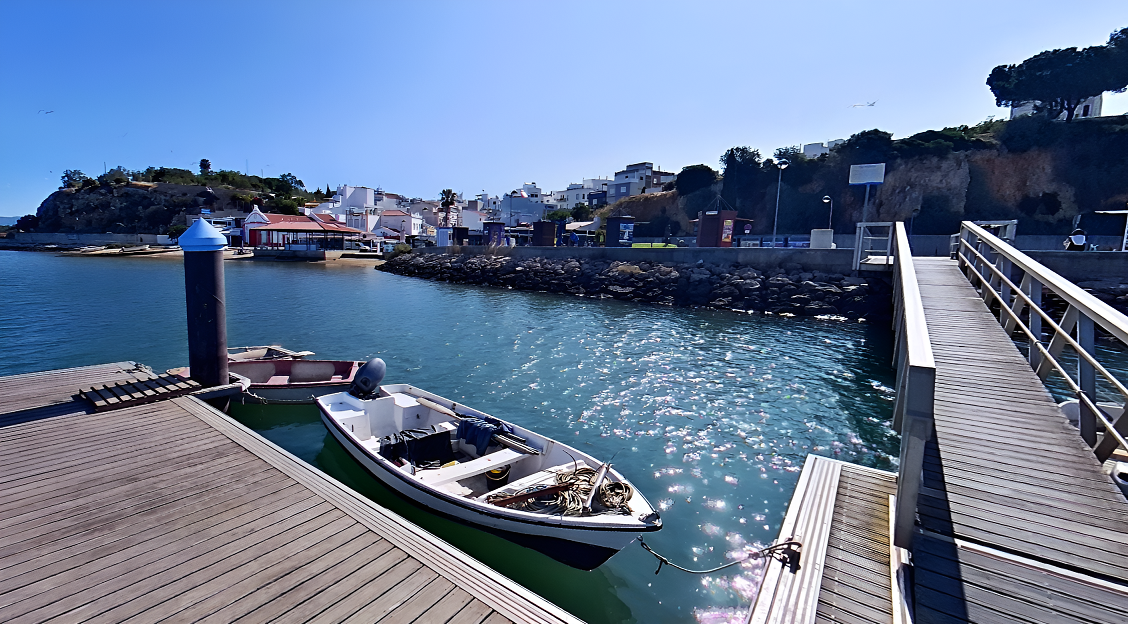
How to get to Alvor?
Alvor is located 70 km to the west of Faro, the capital of Algarve, the home to the international airport. It can be easily reached by taking highway A22 and following the signs to Portimão and then Alvor. It is recommended to pre-book a transfer, as the journey by public transport is very difficult and time-consuming.
If you’re relying on public transportation, you can take a train or bus to Portimão from Faro, then connect to a local bus or take a taxi to Alvor. A taxi hired from Faro Airport costs significantly more than a private transfer.
The bus stop in the center of Alvor is by a roundabout on Rua do Rossio de São Pedro. From here you can walk to just about anywhere in town, including the beaches. There is no train station, the closest one is in Portimão, 7 km (4 miles) away.
Many of the large hotel complexes, line the Praia de Alvor beach. From these locations, it is only a short walk into the center of Alvor. There is also a regular bus service connecting Alvor, Praia da Rocha, and Portimão that passes the hotel areas.
The Algarve has ride-hailing apps (such as Uber and Bolt), and these provide an inexpensive method to travel around the region.
